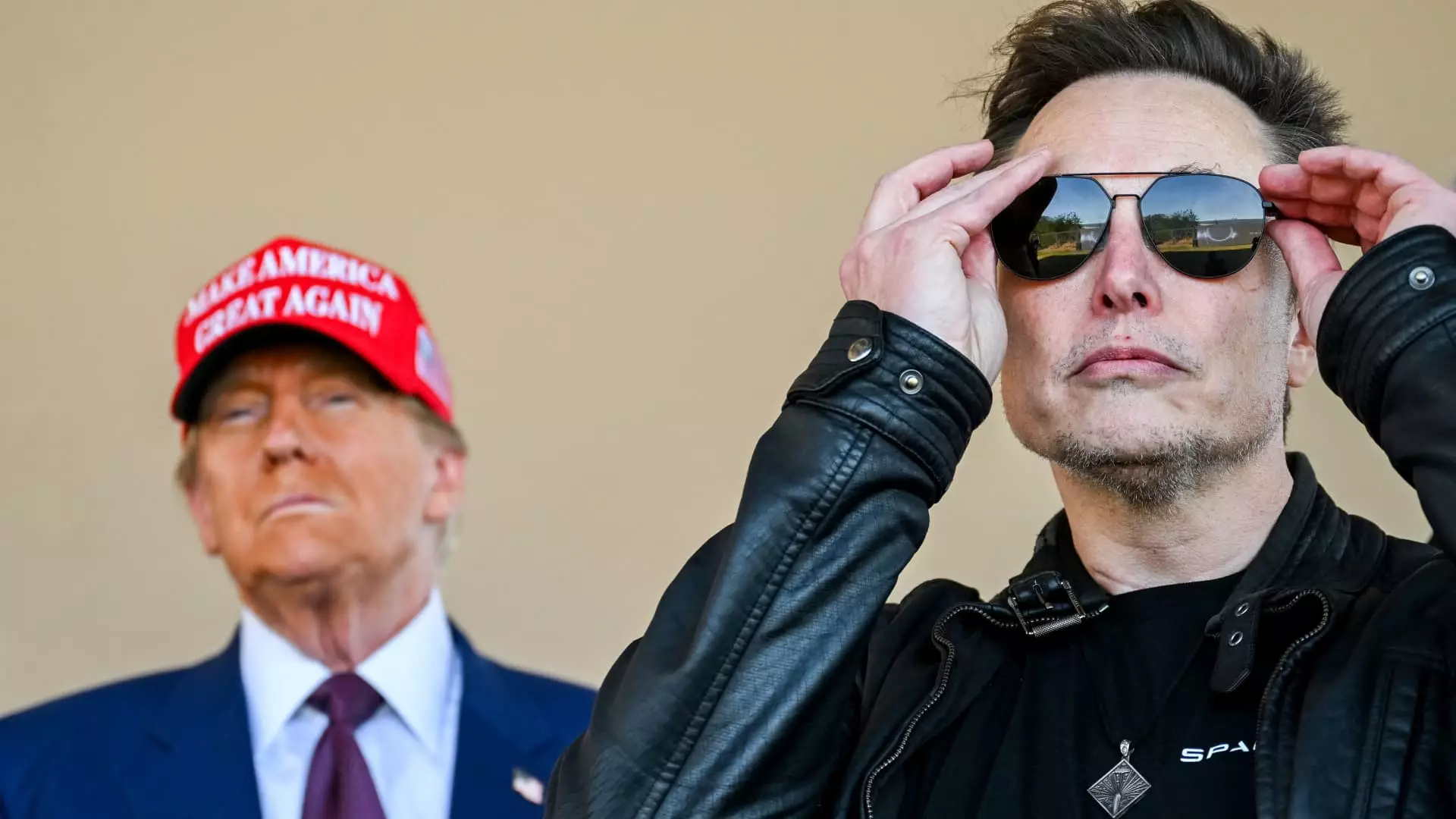The intersection of technology and politics has never been more pronounced than in today’s hyper-connected world. Events of the past few weeks have spotlighted this phenomenon, particularly regarding Elon Musk’s untamed influence over U.S. legislative actions and the implications this holds for the future of governance. As Congress emerged from the brink of yet another government shutdown, voices from the Democratic side began critiquing the significant sway Musk appears to possess over President-elect Donald Trump. This relationship raises questions about the integrity of political discourse and the role of individual power players in shaping public policy.
In a recent unfolding of events, Musk played a pivotal role in derailing a comprehensive bipartisan funding bill drafted by House Speaker Mike Johnson. This extensive 1,500-page legislation was designed to secure government funding and avert a shutdown, but it faced substantial backlash after Musk took to X, formerly known as Twitter. With a substantial platform of over 208 million followers, Musk’s criticism was not just a personal opinion but rather a potent call to action that reverberated throughout the political corridors in Washington. His post, which dubbed the spending bill as “outrageous,” effectively galvanized opposition against the proposed legislation.
The fallout from Musk’s intervention was palpable. Observers noted how the political landscape began to shift in response to his digital blitz, provoking lawmakers to question who truly held the reins of power. The comments by House Democrats, who accused their Republican counterparts of capitulating to Musk’s views, underscored a growing concern that individual voices—particularly those with vast digital followings—are increasingly dictating policy discussions.
Critics within the Democratic party, including prominent figures like Senator Elizabeth Warren, labeled Musk’s influence as troubling, arguing that no un-elected individual should have the power to challenge established governance processes. This sentiment echoed throughout the political landscape, with assertions that the richest man on the planet should not play a role akin to that of an unelected Prime Minister in American politics. The question arises: Is this digital tycoon overstepping boundaries that should be reserved for elected officials?
While some Republican legislators defended Musk, viewing him as a necessary informant bringing transparency to the government’s dealings, this raises ethical dilemmas. Could Musk’s penchant for commentary also lead to increased volatility and instability in negotiations? Senator Bill Hagerty’s remarks suggested that Musk’s revelations about legislative details were invaluable, but at what cost to the sanctity of the political process? The use of social media as a platform for wielding influence can inadvertently transform a previously collaborative legislative process into one marked by chaos and unpredictability.
The implications of Musk’s engagement with political affairs may signal a foreboding trajectory for American democracy. As political stakeholders like Congressman Tony Gonzales liken Musk to a prime minister, the lines between governance and celebrity culture are increasingly blurred. The late-night tweets, often filled with pointed barbs and opinions, naturally raise concerns regarding the impact of digital leaders on crucial governance issues.
Furthermore, the recent activity within Congress suggests that a tumultuous political landscape is on the horizon as Trump prepares for office. There are fears that if Musk continues to wield his vast influence unchecked, ensuing negotiations may mirror the chaos witnessed last week. With funding deals becoming battlegrounds for the political elite and digital influencers, one wonders how much reform and progress can be realistically achieved in such an environment.
Democratic Senator Chris Coons captured this sentiment succinctly, foreseeing that the instability instigated by Musk’s engagement may become a recurrent theme in future legislative sessions. As Congress navigates complex and pressing issues, the presence of powerful figures in the political arena like Musk could morph from being a catalyst for transparency into a source of disarray.
While the convergence of technology and politics may provide unprecedented opportunities for engagement, it also necessitates a critical examination of influence and accountability. The increasingly visible role played by figures such as Elon Musk raises pressing questions about the future of democratic governance and the potential erosion of traditional legislative processes in favor of less accountable forms of influence. As the digital age progresses, policymakers must find a way to balance the benefits of technological engagement with the imperatives of ethical governance.



Leave a Reply